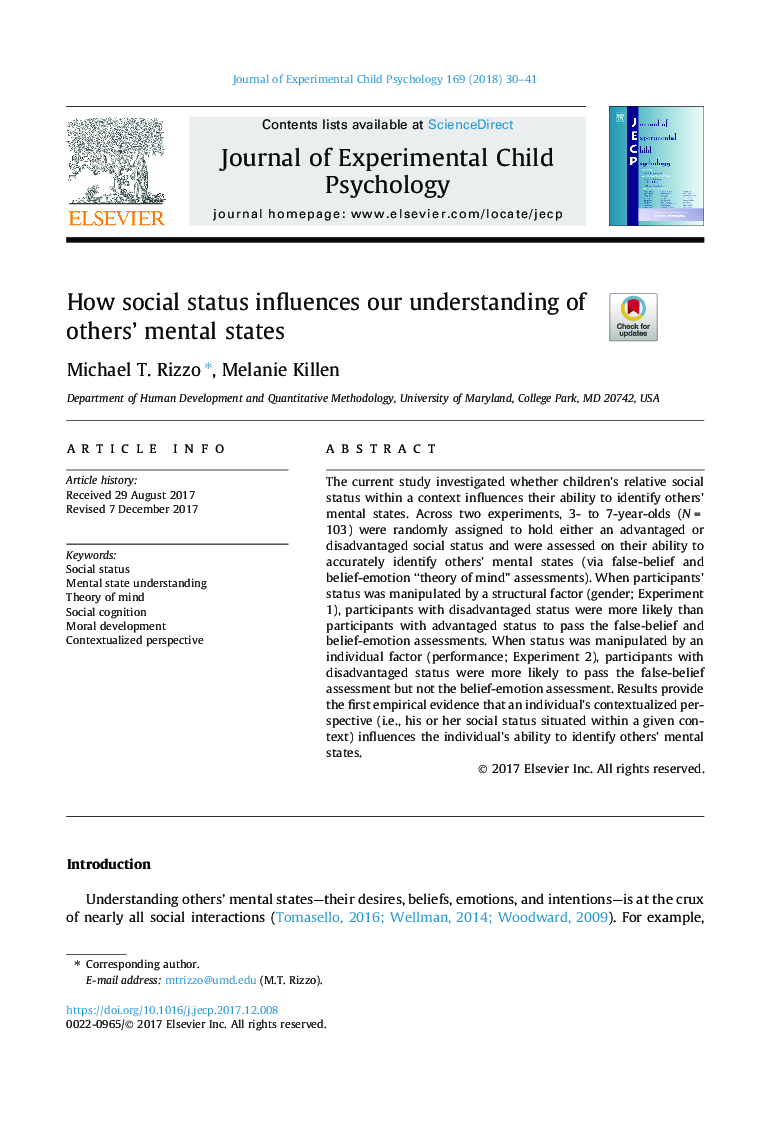| Article ID | Journal | Published Year | Pages | File Type |
|---|---|---|---|---|
| 7274024 | Journal of Experimental Child Psychology | 2018 | 12 Pages |
Abstract
The current study investigated whether children's relative social status within a context influences their ability to identify others' mental states. Across two experiments, 3- to 7-year-olds (Nâ¯=â¯103) were randomly assigned to hold either an advantaged or disadvantaged social status and were assessed on their ability to accurately identify others' mental states (via false-belief and belief-emotion “theory of mind” assessments). When participants' status was manipulated by a structural factor (gender; Experiment 1), participants with disadvantaged status were more likely than participants with advantaged status to pass the false-belief and belief-emotion assessments. When status was manipulated by an individual factor (performance; Experiment 2), participants with disadvantaged status were more likely to pass the false-belief assessment but not the belief-emotion assessment. Results provide the first empirical evidence that an individual's contextualized perspective (i.e., his or her social status situated within a given context) influences the individual's ability to identify others' mental states.
Related Topics
Social Sciences and Humanities
Psychology
Developmental and Educational Psychology
Authors
Michael T. Rizzo, Melanie Killen,
